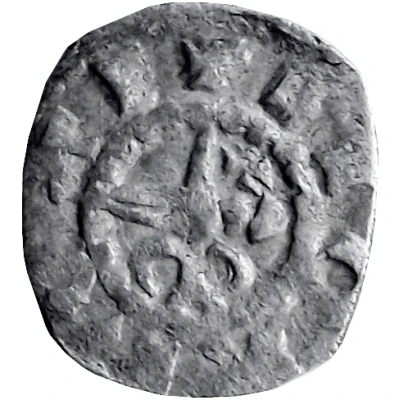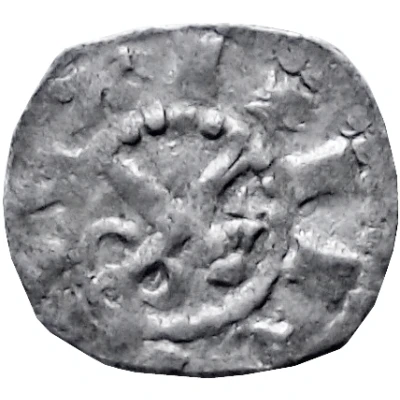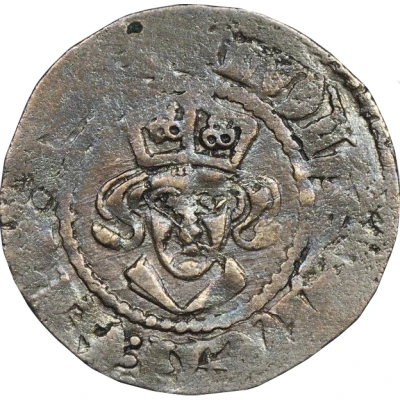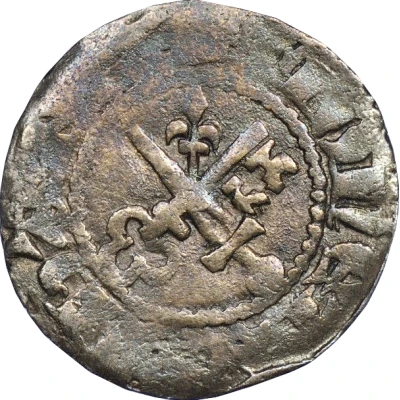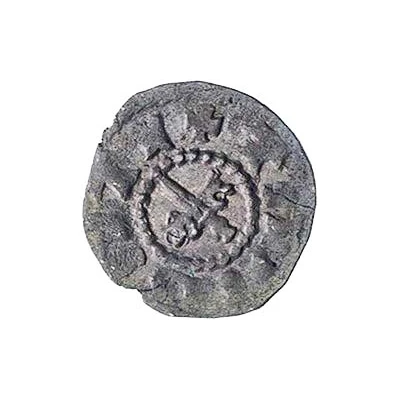
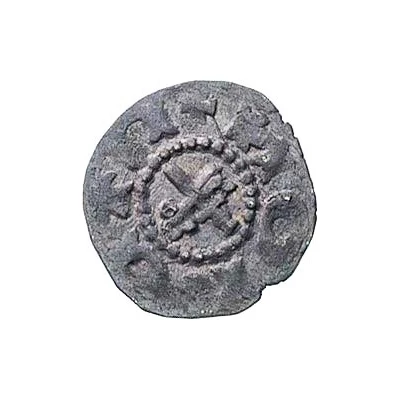

© Warszawskie Centrum Numizmatyczne s.j.
1 Lübische - Dietrich III Resler ND
| Silver | 0.35 g | 13 mm |
| Issuer | Bishopric of Dorpat (Livonian Confederation) |
|---|---|
| Bishop | Dietrich III Resler (1413-1426) |
| Type | Standard circulation coin |
| Years | 1413-1426 |
| Value | 1 Lübische = ⅓ Artig |
| Currency | Artig (1346-1426) |
| Composition | Silver |
| Weight | 0.35 g |
| Diameter | 13 mm |
| Shape | Round (irregular) |
| Technique | Hammered |
| Orientation | Variable alignment ↺ |
| Demonetized | Yes |
| Updated | 2024-10-06 |
| Numista | N#143417 |
|---|---|
| Rarity index | 89% |
Reverse
Crossed sword and key surrounded by legend.
Script: Latin (uncial)
Lettering: MOnET · D
Lettering (regular font): MONET · D
Translation:
Moneta Darpatensis
Coin of Dorpat
Edge
Plain
Comment
Lübische means Lübeck-pfennig, which indicates the popularity of foreign coins (specifically those from Lübeck) in the earlier times of Livonian coinage.The Lübische pieces of Dietrich II Damerow (1379-1400), Heinrich II Wrangel (1400-1410), Bernhard II Bülow (1410-1413), Dietrich III Resler (1413-1426) and Dietrich Gronow (1427-1440) can be difficult to distinguish. While the legend is a good indicator, it can sometimes be blurred or illegible. With that being said, the designs on each ruler's coins are slightly different, varying in size and style.
In 1426, at the end of the Livonian Order's monetary reform, the Lübische's name was changed to Pfennig. While this coin is sometimes given date range of 1413-1441, this coin has a crossed sword and key on the obverse rather than the ruler's symbol, indicating this coin was minted as a Lübische before the end of the monetary reform.
Some sources list the ruler as being Dietrich III Resler, while other sources list the ruler as being Dietrich IV Resler.
Interesting fact
One interesting fact about this coin is that it was minted during the reign of Dietrich III Resler, who was the Bishop of Dorpat (now known as Tartu, Estonia) from 1413 to 1426. The coin features the image of the bishop on one side and the coat of arms of the Livonian Confederation on the other. The Livonian Confederation was a political entity that existed in the 15th century and consisted of the Bishopric of Dorpat, the Bishopric of Ösel-Wiek, and the City of Riga. This coin is a rare example of a standard circulation coin from this time period and region, and its silver content makes it a valuable collector's item.
